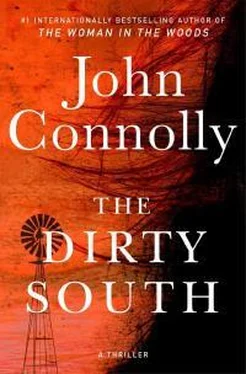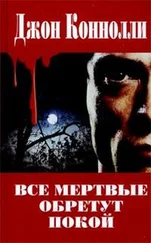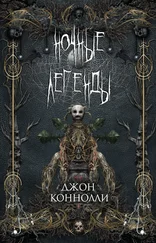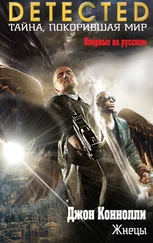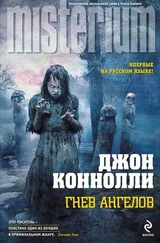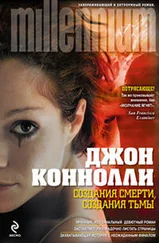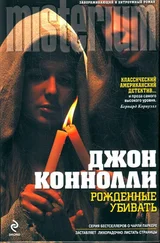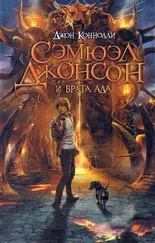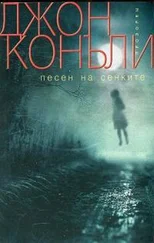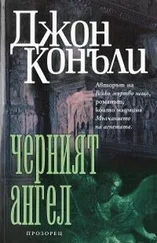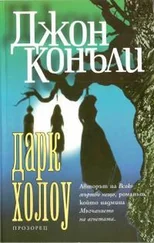Leon Hornbeck always had a thirst. He’d once had a good job, a pleasant wife, and two kids that he saw each evening after work. Now he had a crappy job, no wife, two kids he saw a couple of weekends a month, and that thirst. Even if Kovas settled on Cargill for its facility, Knight thought it would come too late for Leon. He was lost. Eventually he’d wrap his car around a tree while driving drunk, or set himself on fire by falling asleep with a cigarette in his hand.
Knight walked over to check out the interior of the bar. The shutters on the windows were closed, but through a busted slat he saw a single coffee mug sitting on one of the tables inside, and thought he could faintly hear music playing. He didn’t want to go breaking down any doors, not if Denny Rhinehart had been delayed somewhere. Then again, Rhinehart was, in Knight’s opinion, a slothful individual, and if he ever went anywhere, he did so behind the wheel of his truck. Also, he wasn’t in the habit of locking the back door when he happened to be inside, except at the end of the night when counting the takings.
Knight decided to give Rhinehart another half hour. After that, he had a crowbar in the trunk of his car and the bar owner could bill the town for the damage.
‘If Denny shows up anytime soon,’ he told Hornbeck, ‘tell him to give me a call.’
Hornbeck looked at his watch.
‘Okay,’ he said, ‘but he better not be long. I got—’
‘A thirst,’ Knight finished for him. ‘I know.’
This town , Knight thought. This dying town .
78
Until earlier that day, Leonard Cresil had paid attention only in the abstract to the fact of Charlie Parker’s existence. As far as he was aware, the Cargill PD had engaged some passing deadbeat ex-detective, a guy who couldn’t make his nut in the NYPD, to help them with their case in return for beer money. As a former detective himself – although one who had managed to monetize his experience in a significant way – Cresil was aware of plenty of ex-cops who had gone down the private investigator route or hired themselves out as security. Some of them were good, but a lot weren’t, and even the ones that were up to snuff still didn’t meet Cresil’s idiosyncratic standards.
And, yes, Parker’s story, once revealed, was different from most: a cop father with blood on his hands, who had taken his own life rather than face a prosecution for killing two young people, the reasons behind the shootings still unexplained; a career in the NYPD that seemed set to make up for his old man’s sins, even as the son began to inspire unease in those who served with him because of the odor of bad luck about him; the slaying of his wife and daughter, which appeared to confirm all those doubts; a resignation from the force that was neither entirely unexpected nor especially unwelcome; suspicion of involvement in the death of a pimp named Johnny Friday, the investigation into which remained open but was likely to slide for lack of proof and a general reluctance to pursue a man who had suffered so much already; and finally, rumors that he was hunting the one responsible for murdering his family, aided by information that might, just might, be coming from a rabbi within the Federal Bureau of Investigation.
Charles Shire’s money had bought a lot of information on Charlie Parker.
Yet Cresil’s instinct had still been to dismiss Parker as an irritant, one that would, despite Cresil’s own reservations, be dealt with by whatever hillbillies Randall Butcher might round up to deliver a beating – though Butcher would undoubtedly be less willing to oblige were he to learn that he was effectively doing Delphia Cade’s dirty work, and that whatever resulted from the attack would doom him in the long run.
But now, faced with Parker in the flesh, Cresil realized that he had been wrong to underestimate him. Parker might have been young – early thirties, according to the intelligence Cresil had received – but he carried himself like someone much older, although that was almost certainly a consequence of all he had endured. He radiated watchfulness without fear, and a self-aware intelligence. Cresil probably had about five inches and thirty pounds on him, but decided he wouldn’t want to face Parker in a fair fight. Parker might go down, but he wouldn’t stay there, and whatever demons impelled him would keep him coming until his opponent made an error, permitting the delivery of the killer blow.
And if Parker lost, he wouldn’t care, because a part of him wanted to die. All this Cresil recognized in an instant, and understood that he was suddenly afraid of this man.
Cresil leaned against the driver’s side door. He slid his left hand into a pocket of his pants, pushing his jacket back to reveal, almost casually, a gun in its shoulder holster.
‘Can I help you with something?’ he said.
‘Your name is Leonard Cresil,’ said Parker. ‘The only reason you’re not behind bars is because police forces in three states were too embarrassed by your conduct to risk a court case, and instead quietly showed you the door. You’re a rapist and an abuser of women. You may have murdered a union organizer named Marvin Wright in Pensacola, Florida, and you left a federal witness, Enrique Figueiras, in a vegetative state after cracking his skull with a Louisville Slugger in Macon, Georgia, but they’re only the most recent of your victims. You work for the wealthy and powerful, and prefer your employers to possess even fewer moral scruples than you, which is a select group. Because of your actions, I believe you’re living on borrowed time. If you die in your bed, you’ll do so in a pool of your own blood.’
Cresil made an odd biting gesture, an animal response to provocation that was both instinctive and quickly smothered, as though the feral core of his being had briefly been exposed to light.
‘And you’re Charlie Parker,’ he said, ‘a failed son, a failed husband, a failed father, and a failed cop. You killed an unarmed man in a bus station restroom because you can’t control your rage, and now you’re wandering aimlessly in the hope that, somehow, it will bring you closer to the man you’re looking for, and ultimately result in the termination of your own existence.
‘And wherever he is, the one who left you this way is laughing at you, because he took everything you loved and there wasn’t a damn thing you could do about it. You couldn’t protect your wife and daughter, and you didn’t even have the decency to die with them. If you’re lucky, their killer will come for you, and put you out of your misery. But it may be that he’ll just leave you to suffer, and you’ll float from town to town while all that anger and grief eats away at you like a cancer.’
If Cresil was hoping for a reaction, he was destined to be disappointed. Parker showed no anger or hurt, and Cresil knew that he had said nothing to this man with which he had not tormented himself a thousand times over in the months since the loss of his family. It left Cresil feeling strangely angry with himself, as though even his own moral turpitude was unworthy of the words he had spoken.
‘So now we know each other,’ said Parker. ‘I hope it’s you that takes a run at me. I might be willing to put you out of your own pain.’
‘Perhaps I was mistaken,’ said Cresil. ‘I mistook you for one who had mastered his pride, but I was in error. You’re still young, which might explain it some, but you won’t live long enough to make an old corpse. I have a quarter of a century on you, all hard miles, and I’ve watched the dirt cover better men than you who thought they had the measure of me. When you die, I’ll read about it in the newspaper and struggle to remember what you looked like.’
‘We’ll see,’ said Parker. ‘In the meantime, you tell the Cades I said hello.’
Читать дальше
